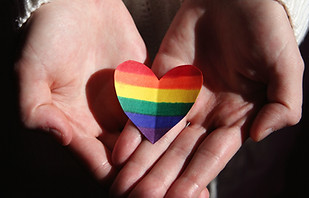
LGBT and Child Therapist
in Los Angeles
My Expertise in LGBT and Queer Affirming Therapy
My therapeutic approach is LGBT and queer affirming. This means I have specific training and experience in working with LGBT and queer people. Specific courses I took at Antioch University included Society and the Individual, Human Sexuality, Lesbian Love, and Queer Counseling and Narrative Therapy.
I have worked with LGBT youth, LGBT young adults, and their families through the COLORS program at Antioch University Counseling Center. I have worked with LGBT identifying clients in the homeless population on Skid Row in downtown Los Angeles through the Wellness Center at The People Concern. I have led a weekly LGBT group for LGBT identifying individuals in the Skid Row homeless community in downtown Los Angeles through the Wellness Center at The People Concern.
As a member of the LGBT community, I also understand firsthand some challenges and issues that LGBT and queer people face, whether that be day-to-day, in relationships, or with family.

Specific LGBT Issues I Work With
I recognize and affirm that your experience as an LGBT person is not like everyone else’s. We live in a heteronormative cisgendered monogamous dominate culture. There are other hard truths to our culture as well, such as ableist or neurotypical, but I’m going to focus on LGBT specific issues for this section. Here are a few examples of issues I work with.
"Coming Out"
Coming out might not always be a positive experience. It might not be something you are not even ready for yet. It might not be safe. There are a variety of issues that could be involved with the coming out process.
One of those issues is that coming out might be forced, otherwise known as “outed.” Your coming out might be rejected or denied, such as “you’re not gay,” or “you’re just going through a phase.” Your coming out might be hijacked or shifted to make it about the other person, such as “I already knew that about you” or “why didn’t you tell me sooner.” Your coming out might be moralized, such as “that’s a sin,” or “that’s wrong.” Your coming out might even be dangerous, physically or emotionally, such as physical acts of violence or insults and derogatory language. There is healing to be had from the trauma of simply saying who you are and living your truth.
